
Anyone with an iPhone in their pocket is in for a treat when iOS 16 drops in the next few weeks The latest version of Apple’s mobile operating system was teased Apple’s developer conference back in June, and has since been released as separate developer and public betas ahead of its official launch – almost certainly alongside the upcoming iPhone 14 on 7 September.
If you’re an early adopter, here’s what to look out for once you’ve installed the beta. And for everyone else, there’s still plenty of time to digest what’s new before it gets beamed to your handset.
Customisation is king for 2022, with major changes to the lock screen – but there are plenty of additions that should get photography, travel and home automation fans salivating. Here are the 10 best new features coming to iOS 16.
An all-new lock screen
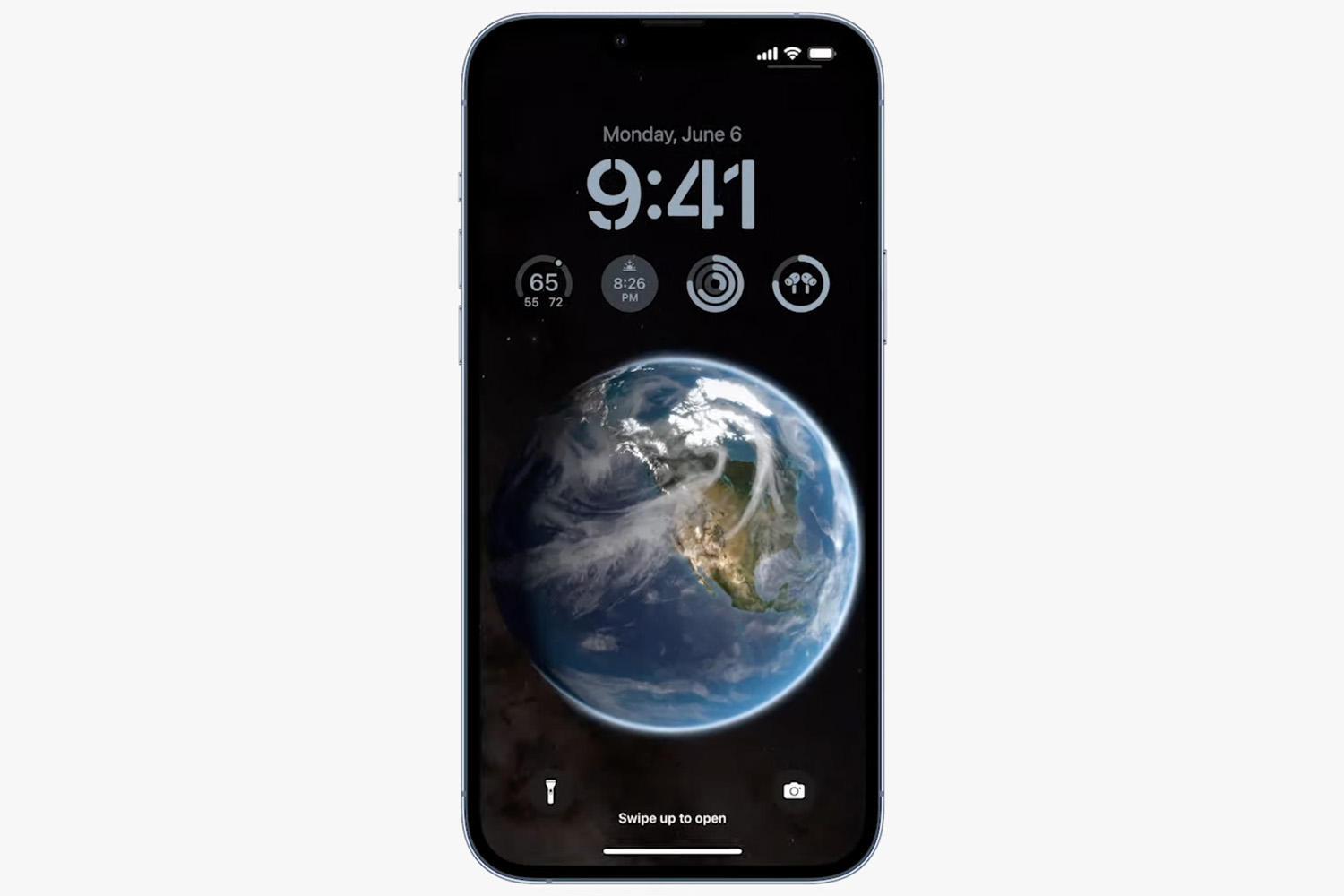
The big one, seeing how it’ll be the first thing you see whenever you pick up your phone. iOS 16 completely redesigns the lock screen, shifting notifications towards the bottom of the screen to leave more space for your photos. Widgets are supported here for the first time, letting you put weather, calendar appointments or your AirPods’ battery status onscreen without having to unlock the phone first.
You can pick the font and colour for the time and date, with some clever depth effects letting the subjects of your lock screen photo overlap the graphics slightly. Built-in photo filters automatically tweak the fonts as you swipe through, for a quick way to give your phone a more unique look. The Lock screen also now works with the Focus feature, letting you set up different lock screens based on if you’re working, travelling or sat at home.
Apps that used to bombard you with multiple notifications (we’re looking at you, Uber Eats and Starbucks) can now use Live Activities to put a single, automatically updating notification/widget hybrid on your lock screen. Apple says it’s perfect for sports scores, and that developers are able to get started on versions for their apps right now. Hopefully, that means there will be plenty of support by the time iOS 16 rolls out.
Smoother message management
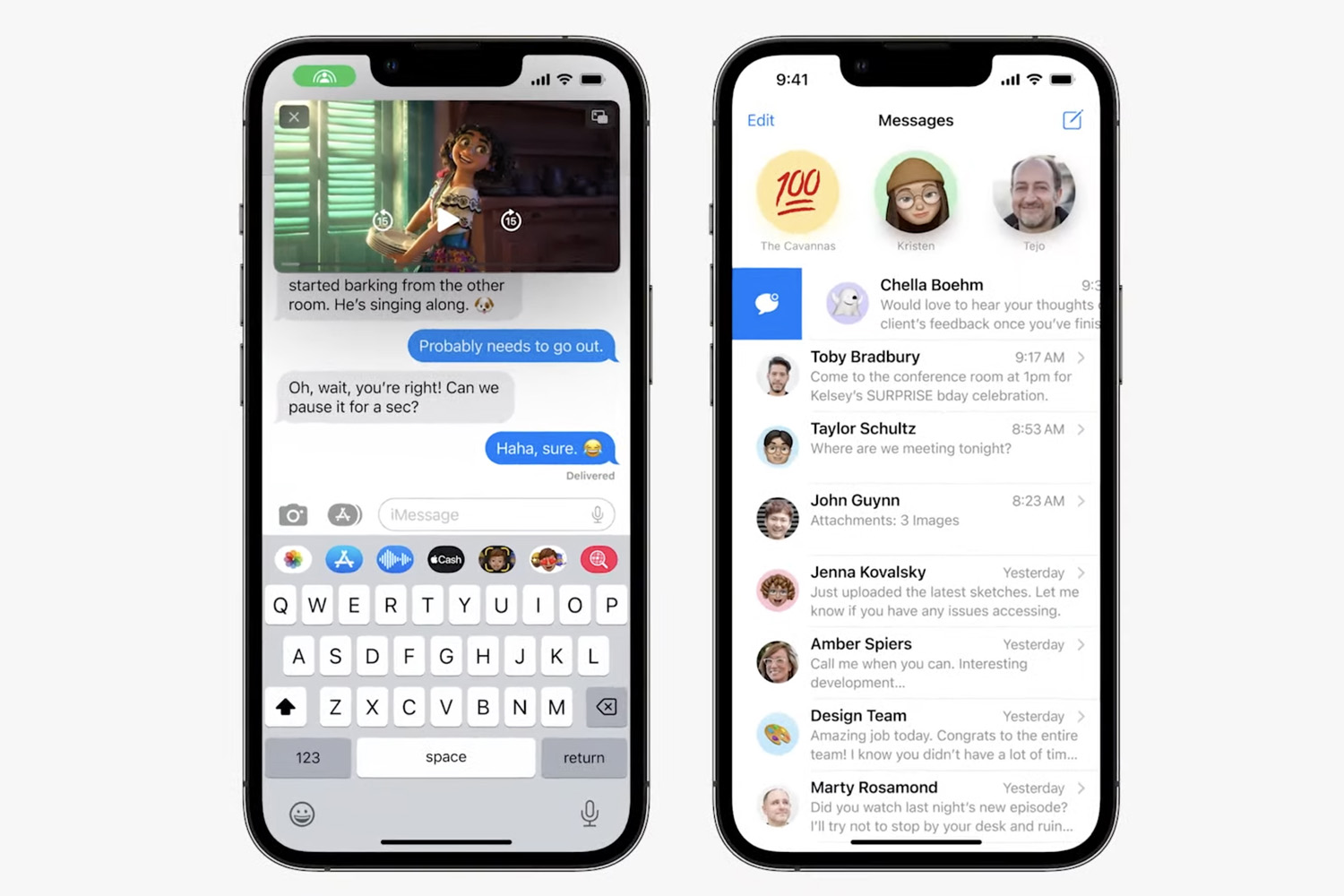
We reckon someone at Apple must have sent Tim Cook a text meant for their other half – why else would Apple be giving us an undo send button for Messages? We’ve all done it, so the ability to delete those embarrassing accidental sends with a long press of the message bubble will certainly be welcome.
You’ll also be able to edit messages after you’ve sent them in iOS 16. If you’ve made a typo, you can make the fix, with an “edited” flag appearing next to the “delivered” one.
Chats can now be marked as unread with a right swipe on the thread, for when you’ve not had the time to compose a reply and you need a reminder to get back to your contact later.
Messages now supports SharePlay, too, so you can start a session directly within the app and catch up with a video at the same time as your friends.
Streamlined dictation
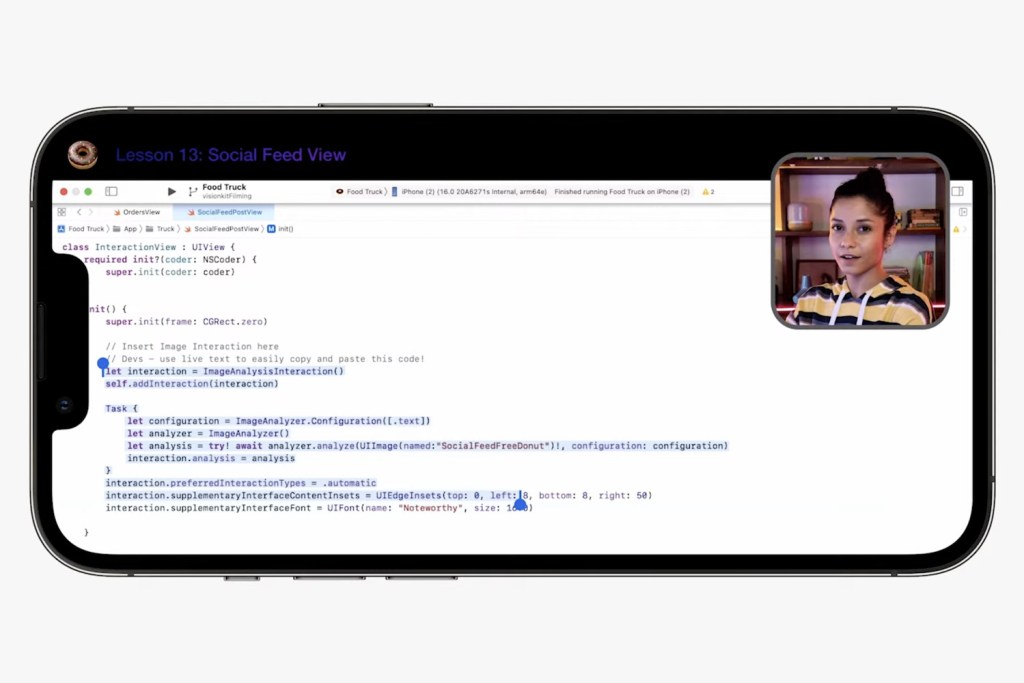
Voice dictation apparently gets a big thumbs up from a sizeable number of iPhone owners already – and Apple’s planning to make it even better. Now the onscreen keyboard will stay visible while you’re speaking, so you can swap input types on the fly. It’ll recognise punctuation and emojis now, and all the language processing is done on-device, so you don’t have to worry about your ramblings living on a server somewhere.
The iPhone’s Neural Engine will also be called into action for text detection in videos, meaning you can pause a clip, highlight any text and paste it into another app. It makes for a neat demo, but we’re not sure how useful it’ll be for the iOS-using majority.
Visual Lookup is also getting an upgrade. Previously this used the camera to identify objects; now it’ll isolate subjects from their backgrounds, and let you drag them into other apps.
Fuss-free family sharing

Limiting what your kids can do on their iOS devices, and for how long, is getting a lot more straightforward in iOS 16. Assigning user profiles for each child and turning on age-appropriate restrictions can now be done across devices, and from one place, with fine-grain control over the sort of ebooks, movies, TV shows and apps they’re allowed to access.
If you set screen time limits, but your kids just need ten more minutes (honest!), you’ll be able to extend the timer through the Messages app.
Finally, a Family Checklist can remind you to review what parental controls are active, and help you deactivate or raise limits as your children get older.
Photos for all the family
Sharing photos with family members is getting a whole lot simpler in iOS 16. Instead of sharing individual photos or albums, you can now have a single iCloud Shared Photo Library, with you and up to give other iCloud accounts contributing snaps. Once set up, you can manually select photos from your camera roll, or use smart suggestions that recognise faces to recommend pics that others might want to have a look at.
All members of a shared photo library have equal permissions, so edits, favourites and deletes get synced across all devices.
Apple has also added a switch directly into the camera app, for sharing new photos directly to a shared library. You can set it to be on or off by default, or have it automatically switch on when you’re in the same area as your family members.
Lastly, in a very welcome move, the Photos app now has an incredibly useful Duplicates function which shows you all the duplicate photos on your phone at the press of a button. You can then merge duplicate photos together, saving precious storage space in an instant. Anyone who’s gone through the painful manual process of deleting WhatsApp duplicates, for example, will welcome this new trick with open arms, freeing up internal and iCloud storage without the need for additional apps or hours of manual sorting.
Home app gets an overhaul
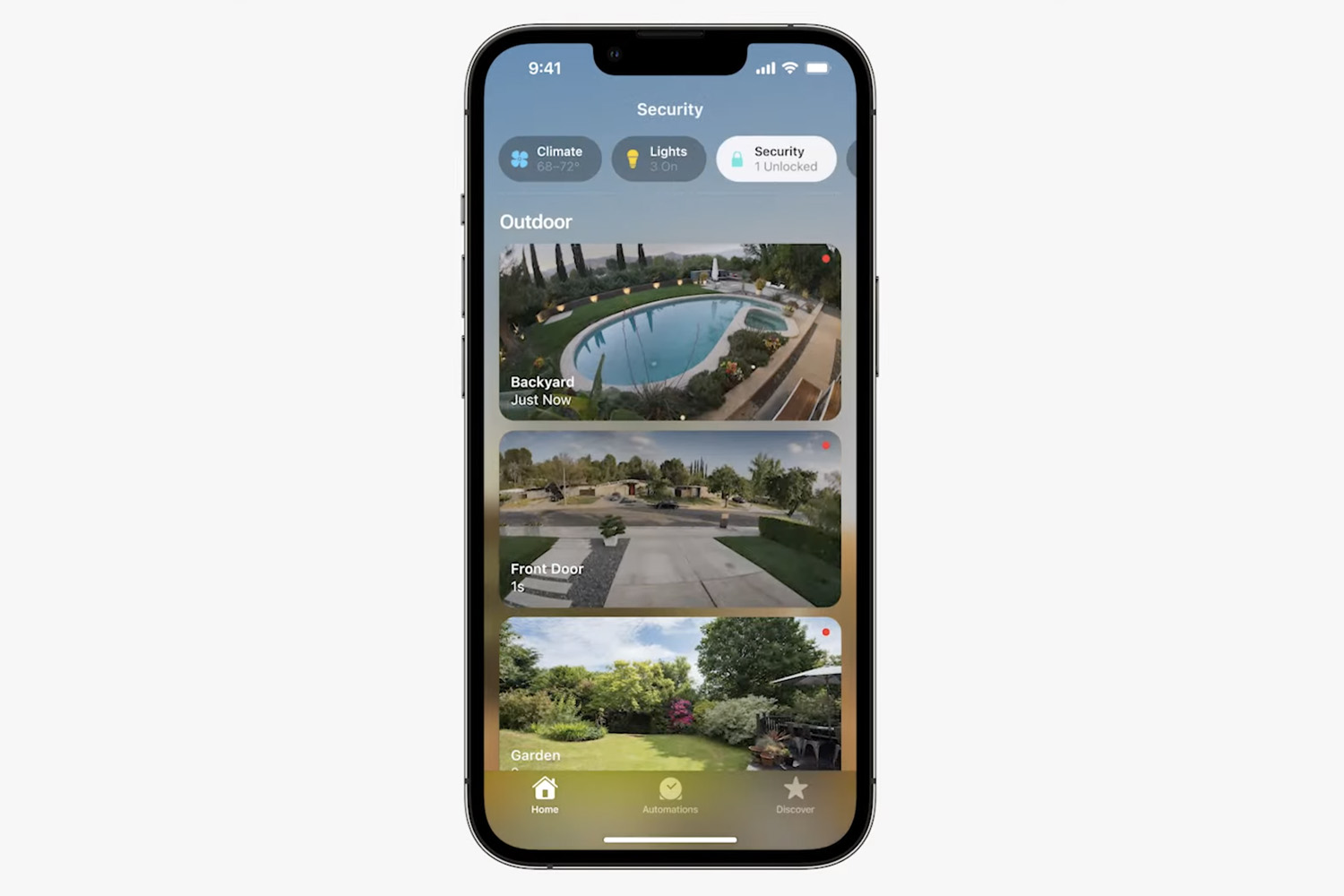
Apple is one of several big-name tech brands getting behind the Matter IoT standard, which is rapidly expanding support into all kinds of smart home kit. More devices means more icons, video feeds and settings to keep track of, so the Home app has been redesigned to put the entire home on a single, scrollable screen.
Categories now sit at the top of the screen, giving one-tap access to security devices, heating/cooling, and lights. Camera feeds get their own, full-width tiles with previews, and automations have been made simpler. A discover tab helps you find compatible gadgets, and the entire back-end has been rewritten to make it more reliable. It’s coming to iPhone, iPad and Mac, but the biggest visual changes can be found on iPhone.
iOS 16 also brings underlying improvements to the Home app to make it more reliable, and supports the Matter standard. The new Home app is available across the iPhone, iPad, and Mac.
Wallet gets smarter
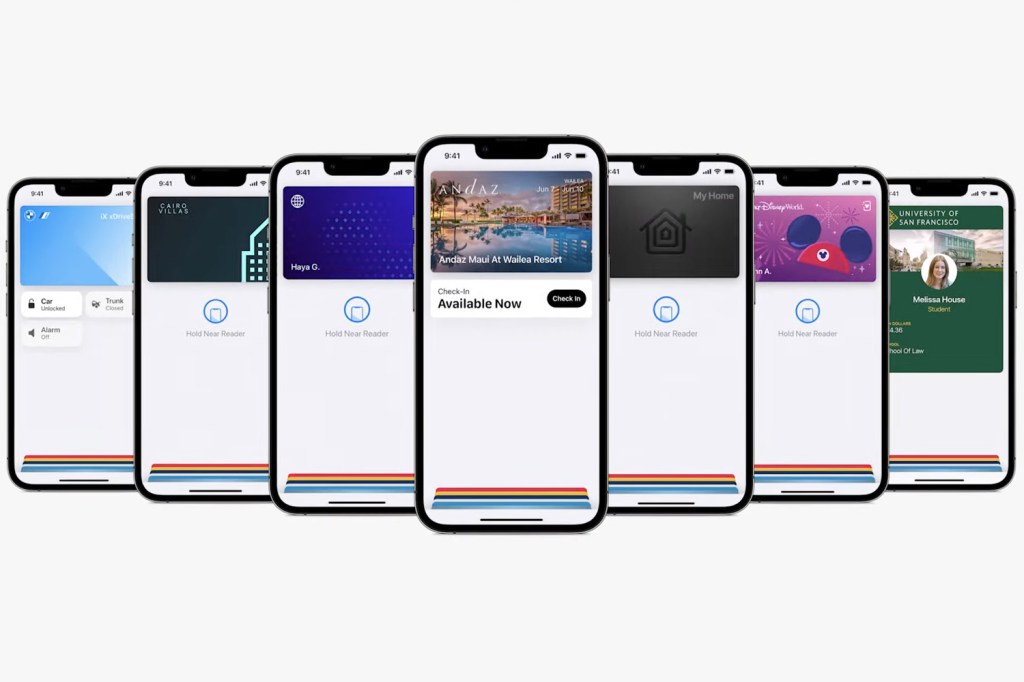
Residents of Maryland and Arizona will be pleased as punch to learn Apple Wallet now supports their state driving licenses. Apple says another 11 should be on the way soon, and can be used in-app without sharing specific date of birth info – just whether you’re legally old enough to be buying the things you’re trying to buy.
Tap-to-pay is coming to the US, letting small businesses accept payments on their smartphones without having to buy dedicated card-reading hardware.
Digital keys are now easier to share, with Messages and Mail support along with third-party integrations including WhatsApp. If you get sent a virtual key, you can add it to your own Apple Wallet. Support is still limited at the moment, and most likely found in high-end hotels, but car makers are slowly getting on board too.
Apple Pay Later is the other piece of the puzzle, letting you split a larger payment into four equal ones that are then paid back over six weeks, with zero interest. Wallet reminds you when to pay, and gives the option to pay the balance in full at any time. No word on whether it’s US-only right now, or if your bank will need to support it.
Maps heads in the right direction
Apple is really putting the work in on its 3D maps this year, with coverage being rolled out to Las Vegas and Chicago as well as other major cities. The virtual aerial view works in light and dark themes, and can be used by developers to better point users towards things like rental scooters, taxi pickups and package drop-off points.
Navigation is getting a leg up with multi-stop routing, letting you plan a trip with several stops rather than having to plan multiple shorter hops. It’ll show the price of public transport when selected, and let you pay within the Maps app using Apple Pay if the network supports contactless payments and ticketing.
Batter percentage returns
The release of iOS 16 sees the return of one feature that was previously annoyingly stripped away — the battery percentage in the status bar. Removed after the launch of the iPhone X due to the space-eating notch, users would have to pull down the Control Center to view the battery percentage. In iOS 16 however, you can tweak the settings so that you can see the specific percentage at all times, regardless of whether you’re in an app or on the Home screen. A godsend for range anxiety sufferers.
Safety Check is there for those that need it
This is one of those “useful, but we hope you never need to use it” features. Safety Check is intended for victims of domestic abuse, letting them instantly remove any information they’ve shared with a partner, including their calendar appointments, app and website passwords, and location information.
CarPlay will take over your car
When it first arrived CarPlay was designed for the horizontal infotainment screens most carmakers were using – but now vertical layouts are more common, and digital dashboards have all but replaced physical instrument clusters. That’s a lot of different display shapes – and Apple wants to be on all of ’em.
As well as expanding to fill whatever infotainment screen your car has, CarPlay will eventually be able to replace the instrument cluster, showing important info like speed, engine revs, fuel reserves and oil temperature (if you’re driving a gas-powered car) or range estimates (if you’re in an EV), as well as navigation. The infotainment screen will also be able to control things like climate control, without having to hand back to the car’s built-in UI.
Apple demoed a handful of different layouts, mixing minimal and modern with traditional, and promised you’ll be able to customise the look and feel of each. Widgets are also making an appearance, in a similar manner to complications on the Apple Watch.
The update was shown as a ‘preview’ of what’s to come, rather than a demo, and will be dependent on carmakers adding support for it, so don’t expect to fill your hatchback’s dashboard with Porsche 911-style gauges until at least next year – and then only if you’re planning a visit to a new car dealership.
…and the rest
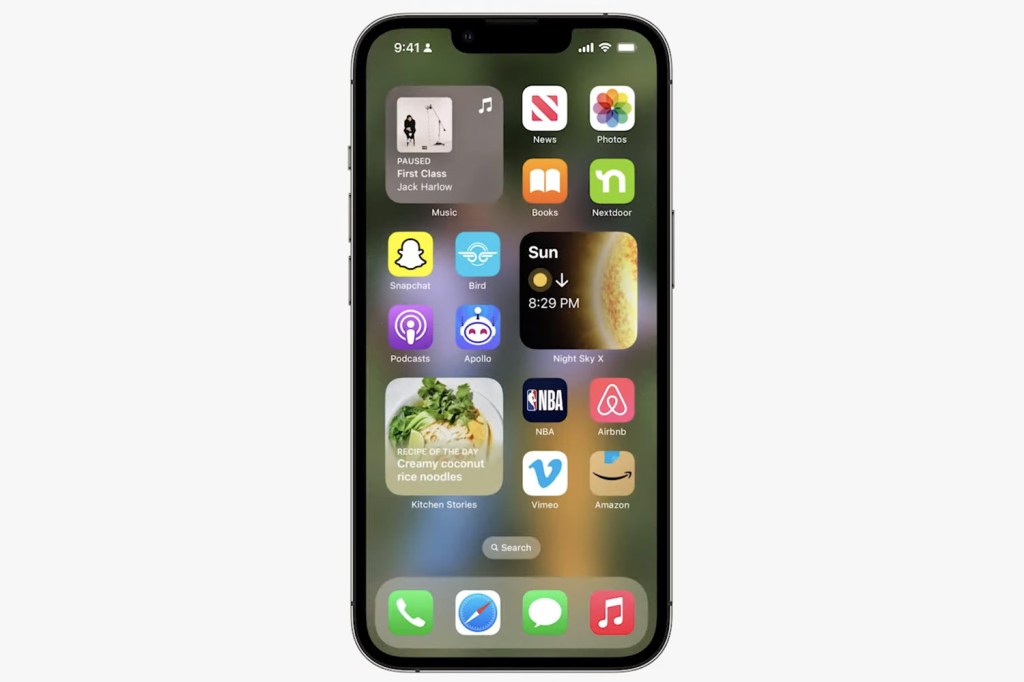
There are plenty of smaller updates coming as part of the iOS update that are also worth a mention. Like the Fitness app, which will come as standard whether you’ve got an Apple Watch or not. Previously you needed to pair Apple’s wearable and smartphone together before the app would show up.
You’ll be able to personalise Spatial Audio using your iPhone’s TrueDepth camera to scan your room, tuning your AirPods Pros to match its layout. You can also ask Siri to hang up hands-free voice calls for you, insert emojis into messages when dictating them, and send without needing a verbal confirmation.
FaceID will now work in landscape mode. The onscreen keyboard gets haptic feedback now (if you want it). Permissions are being tightened, so apps will need to ask before accessing your clipboard. So yeah, there’s lots to look forward to.
If you can’t wait until the usual September/October window when Apple usually releases new iOS updates, the iOS 16 public beta is available to download right now – with no need for any developer account faffing.






